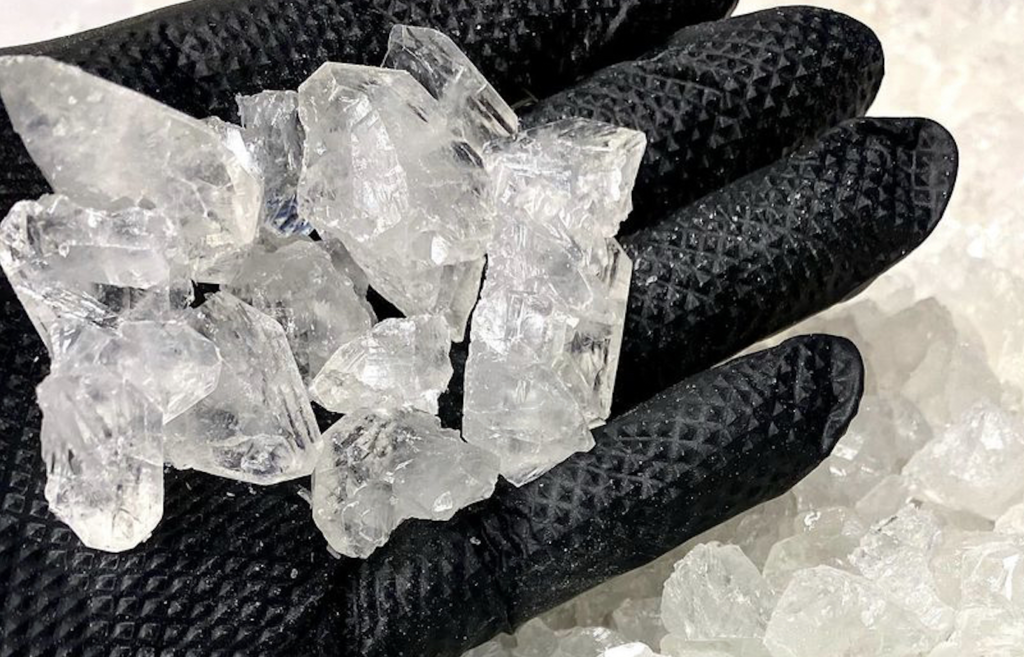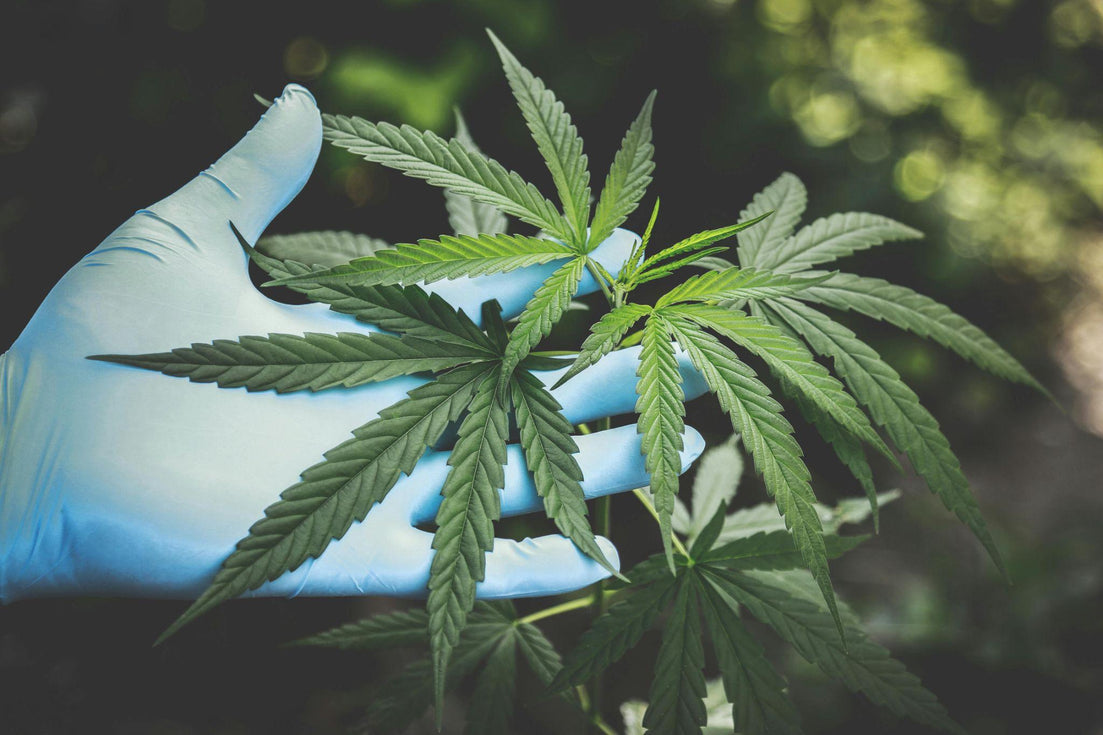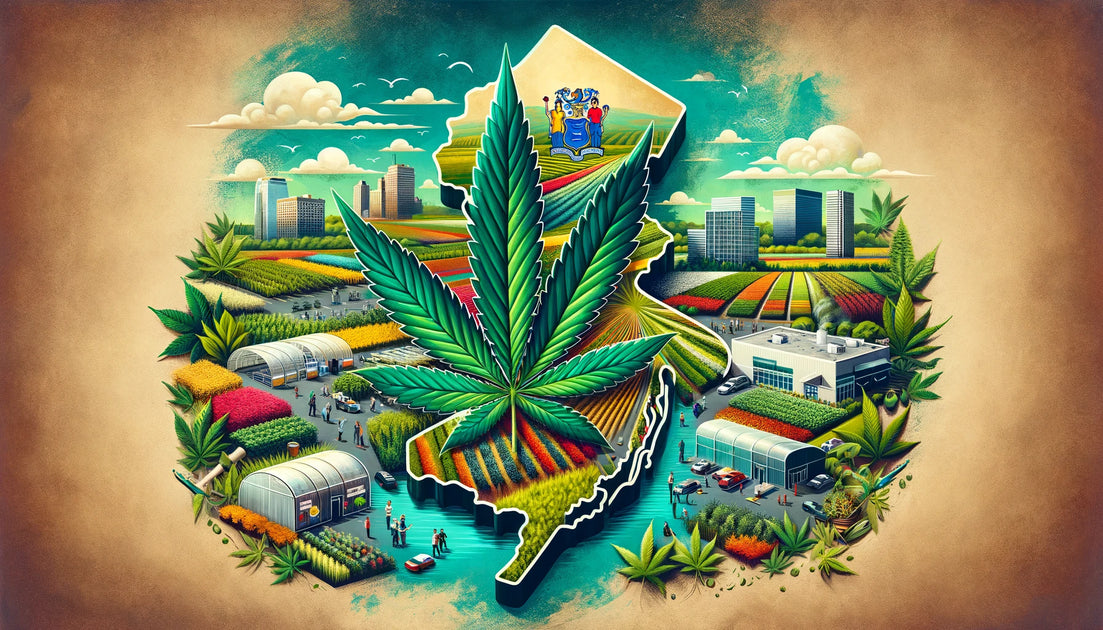Your cart is currently empty.

The cannabinoid THCA, or tetrahydrocannabinolic acid, is garnering interest for its potential therapeutic effects and does not cause psychoactive reactions like THC. Whereas THC produces psychoactive effects, THCA does not; instead, it is being studied for its potential therapeutic benefits. As research continues to explore how this cannabinoid works and what it can do for our health, more people are turning towards products containing high levels of THCA as an alternative way to manage symptoms such as pain, anxiety and insomnia without getting “high”. In this blog post we will look at the differences between THC and THCA, how they work in our bodies, their potential benefits and effects on us – plus tips on finding good quality products with higher concentrations of thca.
Table of Contents:
- What is THCA?
- THC vs. THCA
- How THC and THCA Work
- Potential Benefits and Effects of THC and THCA
- How to Use Thca
- Methods for Consuming Thca:
- Dosage Guidelines for Thca Consumption:
- Conclusion
What is THCA?
THCA, or tetrahydrocannabinolic acid, is a non-psychoactive cannabinoid found in cannabis plants. It is the precursor to THC and is present in fresh cannabis flowers before they are dried and cured. THCA has a molecular composition akin to THC, but with an additional carboxylic acid group at the terminal. This extra group makes it much less psychoactive than its counterpart, as it does not bind well to CB1 receptors in the brain like THC does.
The primary source of THCA is raw or freshly harvested cannabis flower buds. When exposed to heat (such as through smoking or vaporizing), THCA will convert into THC and become psychoactive. Other sources include concentrates such as waxes and oils which have been made from these same flowers but have had their terpenes removed during extraction processes leaving behind only cannabinoids such as THCA and CBD among others.
It is essential to be aware that while there are some resemblances between THCA and THC, they do cause different consequences on the body when taken in either directly or indirectly via smoke/vaporization due to their distinct molecular structures. For example, studies suggest that consuming high levels of THCA may be beneficial for treating inflammation without any associated psychotropic effects typically associated with higher doses of THC consumption alone. Additionally, because it does not bind well with CB1 receptors in the brain like its cousin does; this means that those looking for relief from pain without experiencing any euphoric side effects might find success using products containing higher concentrations of this cannabinoid instead.
THCA, an element naturally occurring in cannabis, has the potential to offer therapeutic benefits; however, more research is needed to understand its impacts completely. With the differences and similarities between THC and THCA, it's important to know how they differ legally as well.
Key Takeaway: THCA is the precursor to THC, found in fresh cannabis flowers before they are dried and cured. It has a similar structure but does not bind well with CB1 receptors so it provides anti-inflammatory benefits without psychoactive effects. Consumption of high levels of THCA may be beneficial for treating inflammation without any associated psychotropic effects typically associated with higher doses of THC consumption alone.
THC vs. THCA
THC and THCA are both cannabinoids found in the cannabis plant. They have similar chemical structures, but there are some key differences between them. THC is the psychoactive compound that causes the “high” associated with marijuana use, while THCA does not produce this effect. THC and THCA engage with the body's endocannabinoid system in distinct ways, leading to dissimilar impacts on the body.
The most significant difference between THC and THCA is their legal status. In numerous countries, including Canada and much of Europe, THC is prohibited to have or ingest without a prescription as it has psychoactive properties. On the other hand, THCA is legal in most jurisdictions because it does not cause intoxication or impair cognitive functioning like THC can.
Our bodies possess receptors that react to naturally occurring cannabinoids found in hemp-derived products such as CBD oil extracts and synthetic molecules produced by pharmaceutical companies for therapeutic use, like pain relief or seizure control. The endocannabinoid system is composed of these receptors dispersed throughout the body which respond to both THC and THCA when ingested orally or applied topically through cannabis plant oil extractions containing either compound (or both). Despite their discrepancies with regard to legality and impacts on cognition, they interact similarly within this framework.
The CB1 receptors located mainly in our central nervous systems bind directly to THC, while THCA interacts more indirectly by being metabolized within the digestive tract before binding to CB1 receptors dispersed throughout the body. This includes those responsible for regulating inflammation levels and other physiological processes related to homeostasis maintenance activities regulated by this important neurotransmitter network which helps maintain overall health. Research suggests that both compounds may offer potential therapeutic benefits for conditions such as chronic pain management or cancer treatment, depending on dosage amounts administered over time along with individual patient responses seen during clinical trials conducted thus far around these topics specifically looking at how best they might be used synergistically. Keywords: endocannabinoid system, CB1 receptor, cannabinoids, therapeutic benefits, inflammation levels
THC and THCA, both cannabis components, are distinct in their properties and should be considered when using either. It is essential to comprehend the role of the endocannabinoid system and its receptors in how THC and THCA are processed within our bodies when examining their functioning.
Key Takeaway: THC and THCA are two cannabinoids found in cannabis, with the former causing intoxication while the latter is legal. They both interact with our endocannabinoid system to produce therapeutic benefits, although they do so differently - THC binds directly to CB1 receptors while THCA needs to be metabolized first.
How THC and THCA Work
The endocannabinoid system plays a major role in the effects of THC and THCA. This complex network of receptors, enzymes, and neurotransmitters helps regulate many physiological processes in the body including pain perception, appetite, mood, memory formation, immune function, and more. The two primary cannabinoids found naturally occurring in cannabis plants are THC and THCA. THC and THCA interact with the endocannabinoid system to produce varied effects on the body.
THC is already active when it enters your bloodstream while THCA must first be converted into THC before it can bind to CB1 or CB2 receptors. To do this requires heat such as smoking or vaping which activates an enzyme called Delta-9-tetrahydrocannabinolic acid synthase (THCAS). Once activated by heat from smoking or vaping THCA will convert into its psychoactive form known as delta-9 tetrahydrocannabinol (THC). After entering your bloodstream through inhalation both compounds will then bind to cannabinoid receptors located throughout your brain and body producing various therapeutic benefits depending on where they bind.
CB1 receptors are primarily found within the central nervous system whereas CB2 receptors are mainly expressed on cells associated with the immune system making them important for managing inflammation levels within our bodies. When either compound binds to these receptor sites they can produce different effects ranging from relaxation to euphoria depending on how much was consumed and where it binds in our bodies. For example if you consume enough THC it may cause feelings of anxiety due to overstimulation of certain areas but if you only consume small amounts you may experience increased focus due to stimulation of other parts that help regulate concentration levels instead.
Ultimately understanding how each compound interacts with our own unique biochemistry is key for achieving desired results without unwanted side effects like paranoia or headaches caused by too much stimulation at once. Thus, beginning with a minimal amount is essential until the body has adapted to it over time.
THC and THCA possess intricate associations with the endocannabinoid system of the body, which could lead to numerous possible therapeutic advantages. By understanding the mechanisms of action for these compounds on endocannabinoid receptors, we can begin to explore their potential applications in treating various conditions. Moving on from here, let us examine some of the possible benefits and effects associated with using THC and THCA.
Key Takeaway: THC and THCA, two cannabinoids present in cannabis with varying levels of interaction with the endocannabinoid system, should be consumed cautiously to ensure desired effects while avoiding adverse reactions. To maximize therapeutic benefits while avoiding unwanted side-effects it's important to start slow when consuming either compound until tolerance has been established over time.
Potential Benefits and Effects of THC and THCA
THC and THCA are two of the most studied cannabinoids found in cannabis. THC is renowned for its psychoactive effects, whereas THCA has been discovered to present possible therapeutic advantages without any psychotropic outcomes. Both compounds interact with the endocannabinoid system (ECS) in different ways, resulting in a range of potential therapeutic and side effects.
Both THC and THCA have been studied for their potential therapeutic effects, such as alleviating pain, anxiety, insomnia, inflammation, nausea and vomiting. Studies suggest that THC may be more proficient in relieving pain than THCA due to its stronger binding affinity for cannabinoid receptors; however, some research implies that both compounds could be advantageous when taken either alone or together. Moreover, there is proof that THCA may possess anti-inflammatory qualities which could potentially diminish swelling related to certain medical conditions such as arthritis or persistent pain syndromes. Furthermore, preliminary research indicates that both compounds may also possess neuroprotective qualities which could benefit those suffering from neurological disorders such as Parkinson’s disease or multiple sclerosis.
Common adverse reactions associated with either compound may include dryness, dizziness/lightheadedness, increased heart rate and paranoia/anxiety; however, individual tolerance levels and dosage amounts can influence these effects. It's also important to remember not all products containing either compound are created equal so it's always best practice to do your own research before purchasing anything online or from a dispensary if you're looking for specific results from using either one of them medicinally .
Finally, when consuming either compound orally (via edibles), it is best to start off slow by taking only small doses until you know how your body reacts. Additionally, smoking either one can cause respiratory irritation so if possible try vaporizing instead since this method typically doesn't produce any smoke but still allows users access the same medicinal benefits they would get otherwise.
THC and THCA may offer certain advantages, but it is essential to be conscious of any accompanying risks. With this in mind, understanding how to safely consume Thca is essential for optimizing its potential benefits.
Key Takeaway: THC and THCA, two cannabinoids from cannabis, can affect the endocannabinoid system to bring both possible healing effects and potential hazards. Both compounds should be taken cautiously, starting off slowly and using vaporizing over smoking when possible, for best results.
How to Use Thca
Methods for Consuming Thca:
There are a few ways to use THCA, depending on your preference. You can take it orally in capsule form or as an oil tincture. Vaping THCA is an option for consuming the concentrate, with inhalation being directly into the lungs. For those who prefer edibles, you can mix THCA with butter or coconut oil and bake it into treats like brownies or cookies. Finally, you could apply a topical cream containing THCA directly onto the skin for localized relief of pain and inflammation.
Dosage Guidelines for Thca Consumption:
It’s important to start slow when taking any new supplement, including THCA. Start with a low dose of 5-10mg and gradually increase as needed to find the best results for your individual body. Everyone’s body is different, so there is no one-size-fits-all dosage recommendation when it comes to using THCA products. It’s best to consult with your healthcare provider before beginning any supplementation program involving THC or its derivatives such as THCA.
Therefore, if consuming high potency concentrates, it is important to remember to “start low and go slow”. Adverse reactions, such as dizziness, nausea, vomiting and confusion may be experienced when consuming large amounts for extended periods; however these symptoms are usually less intense than those from smoking marijuana flowers with higher concentrations of delta 9 THC (>20%).
Conclusion
In conclusion, THCA is a cannabinoid that has potential therapeutic benefits and effects. THCa can be employed to alleviate ailments such as distress, unease, and sleeplessness without the psychotropic effects of THC. Knowing what percentage of THCa you are getting in your product is important for understanding its potency and effectiveness when using it therapeutically. Ultimately, further research needs to be done on THCA before we understand its full range of possible uses and applications.
Take a deep dive into Weed Republic's research on THCA and its potential benefits for CBD, Delta 8, and Delta 9 users. Explore our resources to discover the latest developments in this rapidly evolving field of study.



